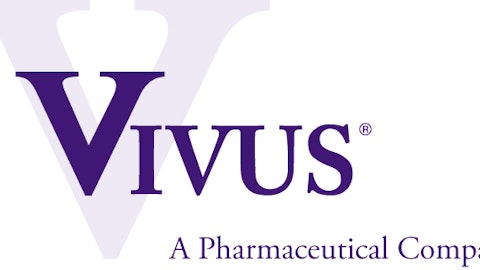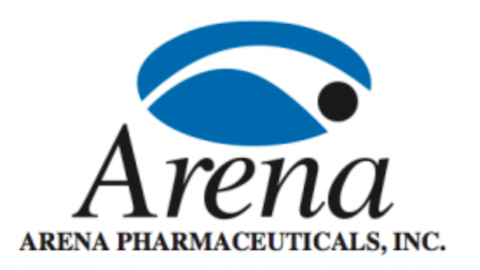Earnings season is now starting to wind down, with most companies already having reported their quarterly results. But there are still some companies left to report, and VIVUS, Inc. (NASDAQ:VVUS) is about to release its quarterly earnings report. The key to making smart investment decisions with stocks releasing their quarterly reports is to anticipate how they’ll do before they announce results, leaving you fully prepared to respond quickly to whatever inevitable surprises arise. That way, you’ll be less likely to make an uninformed kneejerk reaction to news that turns out to be exactly the wrong move.

Stats on VIVUS
| Analyst EPS Estimate | ($0.44) |
| Year-Ago EPS | ($0.14) |
| Revenue Estimate | $3.34 million |
| Change From Year-Ago Revenue | NM |
| Earnings Beats in Past 4 Quarters | 0 |
Sources: Yahoo! Finance, S&P Capital IQ. NM = not meaningful; VIVUS had no revenue in the year-ago period.
Will VIVUS finally pay off for investors?
Analysts aren’t too optimistic about VIVUS coming into its report, as they’ve cut nearly a dime off earnings-per-share estimates for the quarter over the past few months, and for full-year 2013, current consensus has fallen by more than $0.25 per share over the same time frame. But investors haven’t been deterred by those concerns, as the stock is up more than 25% since mid-November.
VIVUS wasn’t the first company to get its obesity drug approved, as Arena Pharmaceuticals, Inc. (NASDAQ:ARNA) managed to get its Belviq drug past the FDA gates first. But Arena hasn’t been able to release Belviq pending DEA classification, VIVUS got a head start on sales. After a slow start, sales have picked up somewhat, with the company saying that sales in the late November to late December period rose 68% from the prior four-week period.
More recently, though, questions have arisen about whether any blockbuster anti-obesity drug will emerge from the fray. Safety issues have again come up, with the regulatory agency responsible for approving drugs in the European Union rejecting VIVUS’s appeal pending more clinical data on potential risks of cardiovascular problems. Moreover, even if safety concerns with anti-obesity drugs get resolved successfully, most medications can’t solve obesity without accompanying changes in patient behavior.
Moreover, cost has been a concern, as 30% of patients have given up their prescriptions. Aetna Inc. (NYSE:AET) changed its policies to call Qsymia and Belviq “medically necessary” and therefore allowed them to qualify for drug benefits in many cases, and pharmacy benefits manager Express Scripts Holding Company (NASDAQ:ESRX) has added Qsymia to its national formulary, opening the door to copayments of $50 to $60 for many patients. Other insurance providers may conclude that encouraging obesity treatment leads to lower overall health costs in the long run and therefore make the same change.





